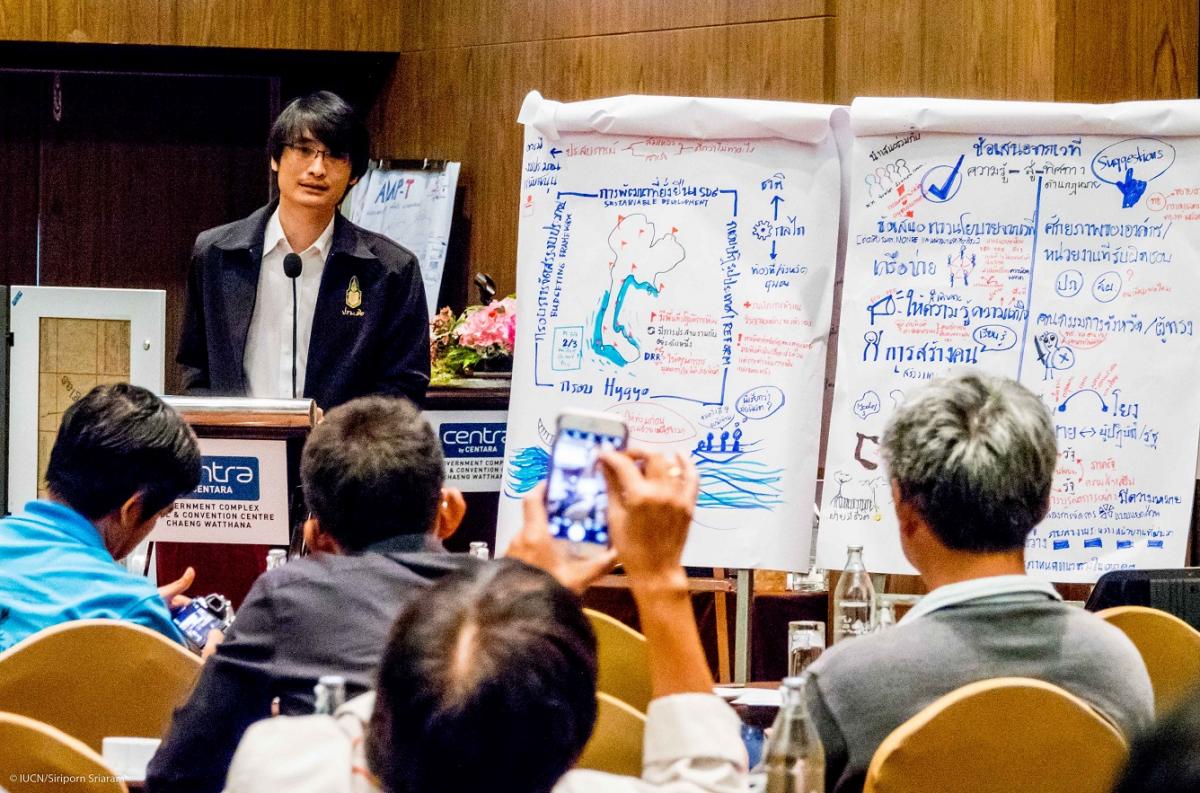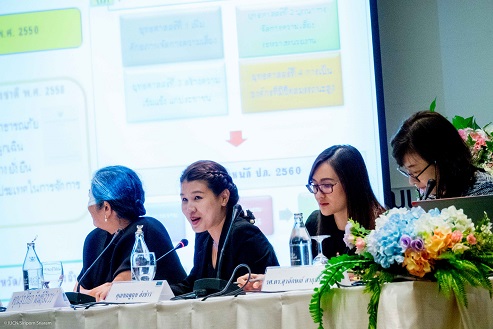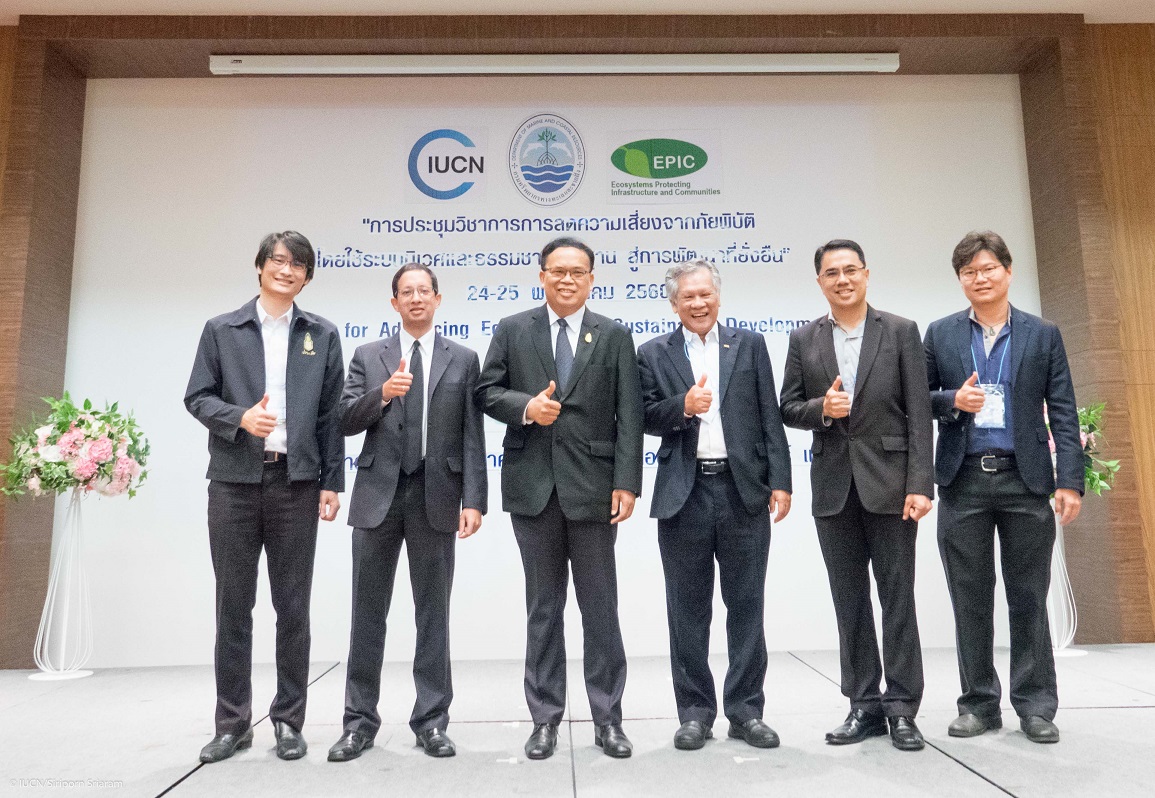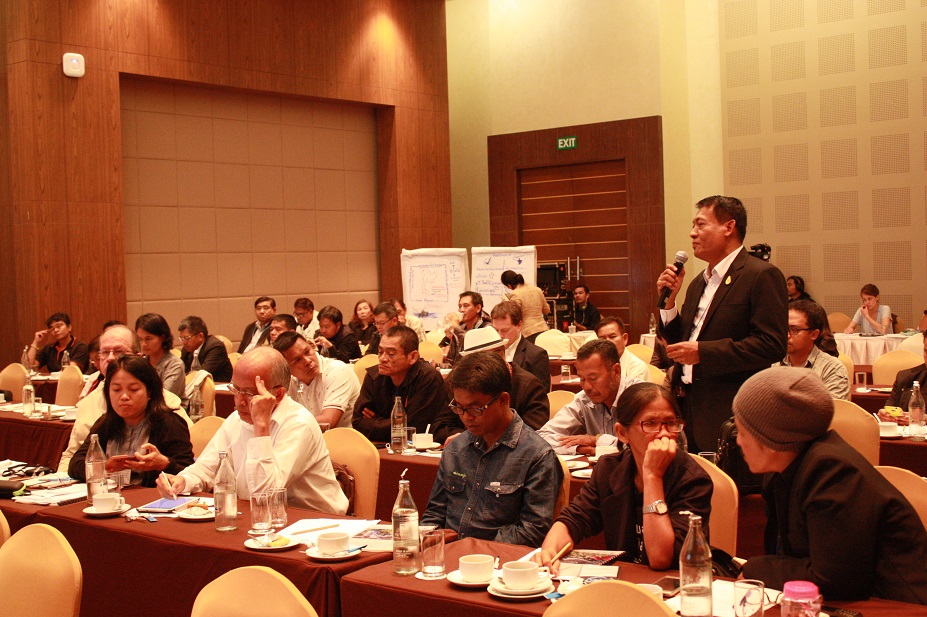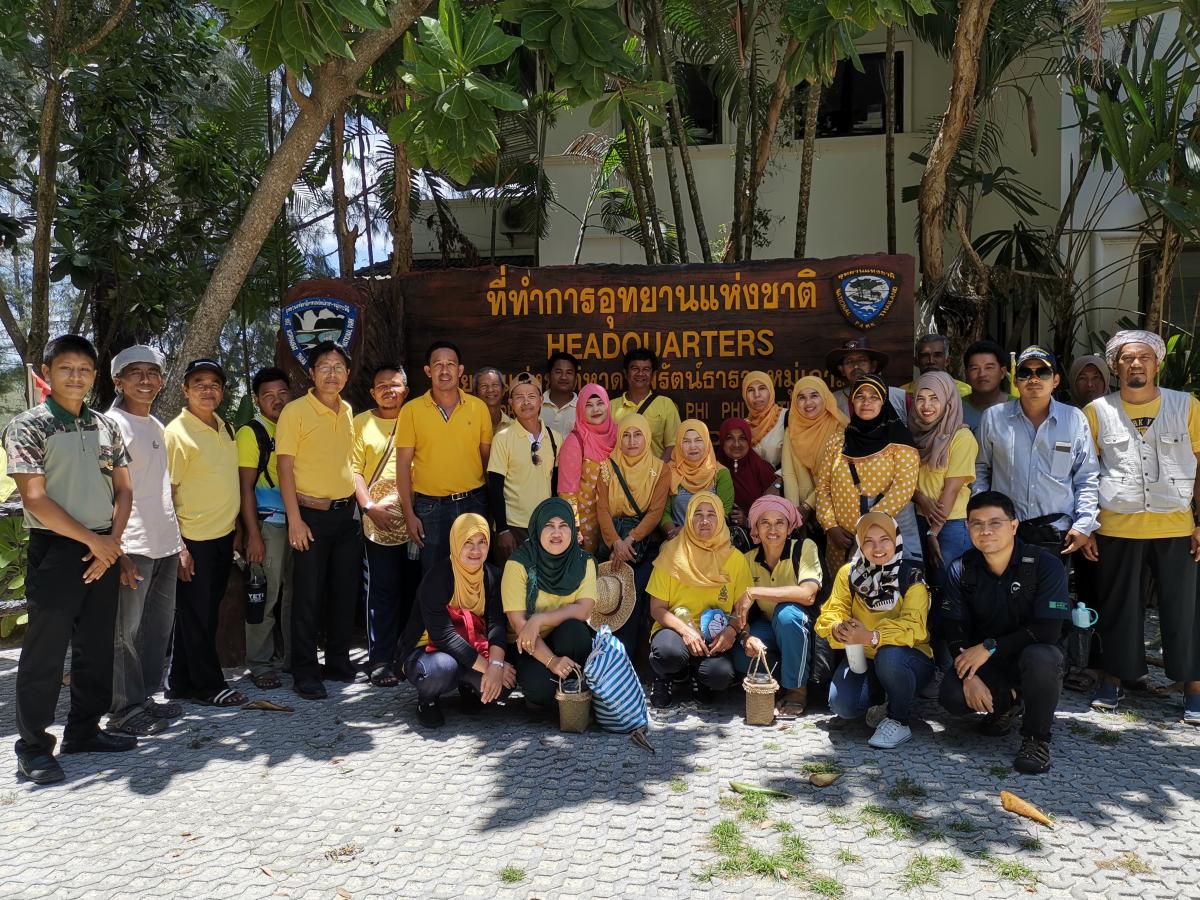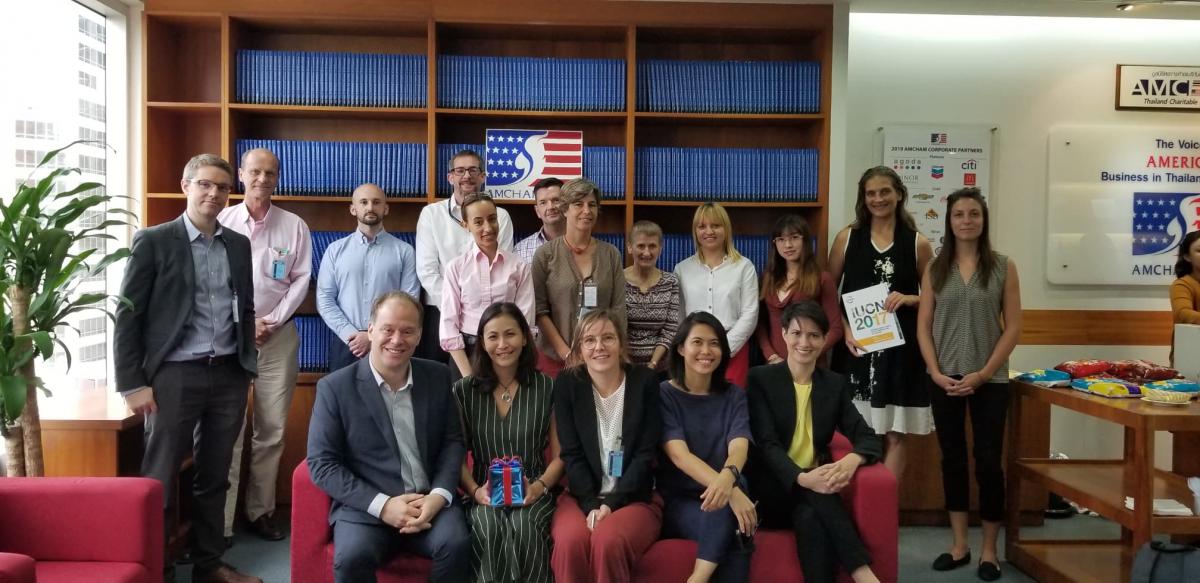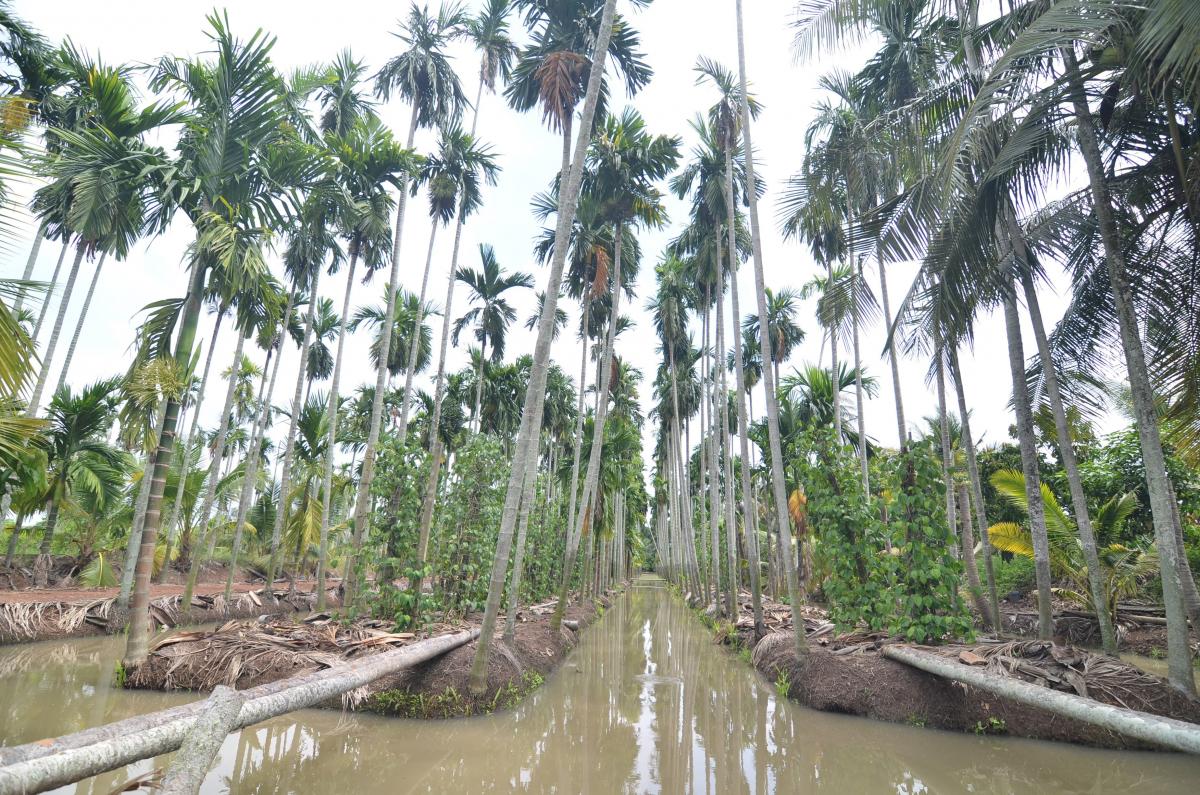Advancing Ecosystem-based Disaster Risk Reduction into Sustainable Development
Ecosystems Protecting Infrastructure and Community (EPIC), funded by the German government’s BMU’s International Climate Initiative (ICI), aims to document the role of – and improve – ecosystem management for disaster risk reduction (DRR). This concept is also referred to as Ecosystem-based Disaster Risk Reduction (Eco-DRR).
The EPIC project in Thailand started in 2012. The Mangrove Action Project (MAP) is the implementing agency for field demonstration sites in Krabi province, while IUCN focuses on the policy component, working with the related government agencies in Bangkok. The project aims to promote ecosystem-based disaster risk reduction, by engaging people in sustainable natural resource management, restoration and conservation, to ensure that healthy ecosystems provide functional ecosystem services as well as protecting communities and infrastructure from disaster risks.
The demonstration sites of the EPIC project in Thailand are in Klongprasong sub-district, Muang district, Krabi province. The project focuses on the mangrove ecosystem as a natural barrier to protect communities from storm surges and reduce erosion in mangrove forest areas. Community based Ecological Mangrove Restoration (CBEMR) has been used to restore abandoned shrimp ponds, encouraging local community participation in mangrove ecosystem restoration and conservation.
As the EPIC project in Krabi concludes, a final forum focusing on Eco-DRR was organized from May 24-25, 2017 in Bangkok. A two-day workshop promoted institutional change towards integrating ecosystem-based disaster risk reduction into development planning at national and sub-national levels.
In addition, awareness-raising among key players about the multiple benefits of ecosystem services for DRR and sustainable development, and the methods for sustaining and enhancing these services were highlighted. Sharing experiences and lessons learned to mitigate the impacts of coastal erosion, flash floods, landslides, severe monsoon and storm surge were prioritised and discussed in this forum.
“Nowadays, the Thai government is expediting the process of policy reform to enhance sustainability by encouraging engagement in natural resource management. A number of Thai people depend on natural resources for their livelihoods, so sustainable management is crucial. Besides, the government’s new master plan is expected to increase forest coverage to 40% by 2032 from current forest coverage at 31.6%. A major strategy using for this policy is the synergy between local people and the government on restoration and conservation, while the forest reclamation operation led by the government will be applied in the illegally encroached areas .” said Dr. Wijarn Simachaya, Permanent Secretary of MONRE (Ministry of Natural Resources and Environment).
An example of the Eco-DRR methodology used as the Nakon Si Thammarat Model was presented by Geo-Informatics and Space Technology Development Agency (GISTDA), showing the change of rice paddy area over 30 years. This historical data led to the conclusion that the loss of the wetland and floodplain in the study areas caused by urbanisation and city development into the rice paddy areas. As a result, the impact of floods gradually increased due to the loss of wetland ecosystem services.
In order to enable an effective natural resource management through Eco-DRR, the historical and scientific data on landscape needs to be prioritised for planning, including an integration of local wisdom and community engagement. Synergy of different government agencies and joint investment for the Eco-DRR project in the demonstration areas must be prioritised. Moreover, hybrid solutions, with hard infrastructure and natural habitat, should be used as a tool to reduce disaster risk and applied as appropriate.
At present, the Promotion of Marine and Coastal Resource Management Act (2015) provides opportunities for coastal communities to propose any activity related to marine and coastal resource protection, restoration and maintenance, through a mechanism of the Provincial Committee on marine and coastal resources, which community representatives are appointed to as experts. These experts are encouraged to propose Eco-DRR projects to the Provincial Committee and to implement the projects with the engagement of local communities affected by the impacts of natural hazards.
At the national level, it was recommended that Eco-DRR should be integrated into the mainstream of national development strategies. Eco-DRR significantly contributes to Sustainable Development Goals (SDGs) and the government’s 20-year national strategic plan. The collaboration of all government agencies towards SDGs will be a great opportunity to initiate a collaborative work plan on natural resource and environmental management and disaster risk reduction.
It was recommended to establish a working group for Eco-DRR and other related issues under the national reform framework. A solid action plan on Eco-DRR should be clearly developed with sufficient funds allocated to the demonstration sites, including achievement indicators, effective knowledge management, a database collection at the local level, and a monitoring and evaluation plan.
The EPIC workshop proved to be an important platform to encourage networking and promote incorporating all voices into management approaches. This level of information sharing will engage stakeholders to continue networking and collaborating and ensure these recommendations on Eco-DRR are incorporated into future development policies of Thailand.
